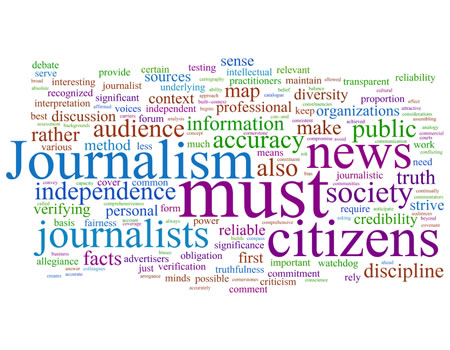
Today, officials particularly media jobbers in government houses seek to prevent sensitive information from being revealed to the public, there are no constitutional restraints to public information on national security grounds. However, Information management and public diplomacy has become a big joke, particularly with the overbearing influence of government’s spokespersons often called ‘senior special assistant on media and publicity’. They have become all knowing and leaving consumers of government information in bad taste.
Regrettably, the flattering reputations anchored on courtesies, consecrations and exaltations of political leaders in office as ordained and overtly legitimate present a grave danger for incompetence and a rape on the collective understanding of public policy and good governance. Government communication managers have mastered the art of lies, self-advertisement, and self-promotion and perfected the destruction of the work of others and those who engage government policies and actions usefully. Many of them have joined in the adulation and propagation of the ‘written untruth’. They all use their tongues and pens to establish and perpetuate myth and broadcast in its simple messages which dwell on: The president, ministers and governors are good, rest is bad, government policies a success, opposition a failure!
While public communication and diplomacy are not without bias, the primacy of objectivity and social responsibility of the press should not be compromised at the altar of parochialism and propaganda. Media jobbers make their principals flawless without concerns for good governance and nation building. Constructive journalism is an emerging domain which involves communication based on reporting solution-focused news, instead of the unscrupulous mock-up and reactive stance of media practitioners in the corridors of power.
For the avoidance of doubt, constructive journalism is somewhat a new concept. Nonetheless, it is deep-seated in social responsibility theory of the press. The theory is one of the foundational stones for the practice of journalism and it requires the press to abide by a code of conduct and to develop an uncommon standard within journalism. This way, the facts provided by the press are analysed and interpreted so that the people get true information and an understandable public policy, which helps to maintain social harmony by revealing social evils like corruption and discouraging negative tendency of the executives and public servants from manipulating citizens.
Nevertheless, one of the major impediments to strategic public communication is the appointment of inefficient and incompetent media jobbers and brown envelope spokespersons who offer the least resistance, are often preferred by politicians, and the unscrupulous flatterer tends to parade themselves in political positions within different administrations. Most of the appointees with no sufficient grounding in public policy expertise most time act in emptiness without deep understanding of behaviour change communication, which is only tidiness in stagnation. Indeed media and society fit in together in the dynamics of dialectical relationship. The focus on existential defence of their principals’ actions, and in doing so, they misrepresent the public by inducing parochialism, prejudice and lies through their choice of reckless statements to cover up the ills of government.
Samuel Orovwuje
orovwuje@yahoo.com
WATCH TOP VIDEOS FROM NIGERIAN TRIBUNE TV
- Let’s Talk About SELF-AWARENESS
- Is Your Confidence Mistaken for Pride? Let’s talk about it
- Is Etiquette About Perfection…Or Just Not Being Rude?
- Top Psychologist Reveal 3 Signs You’re Struggling With Imposter Syndrome
- Do You Pick Up Work-Related Calls at Midnight or Never? Let’s Talk About Boundaries






